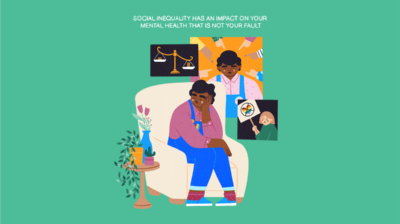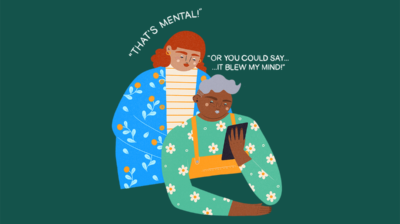Things to avoid saying to someone with a mental health difficulty
How you respond when they share how they’re feeling is important

When someone is feeling down or they are going through a tough time it can be difficult for them to express how they are feeling and what’s going on for them. It’s important that you give them the space and time to talk without being judgemental in any way.
We’ve put together a few things that you should avoid saying to someone going through a tough time.
What to avoid
- Brushing their concerns and feelings off by putting them down or make them feel guilty for the way they are feeling.
- Giving out to them for feeling a certain way. It won’t work and will only make them feel even worse.
- Criticising them for feeling the way they do.
- Talking too much. This is their time, so allow them time to express how they feel and what’s going on for them.
- Calling them selfish or tell them how lucky they are to be alive. You can’t guilt someone into feeling better.
- Telling them to stop feeling sorry for themselves.
- Telling someone to pull themselves together. Would you say the same to someone with a physical illness?
- Trying to solve their problem. Sometimes it may just be enough to listen to someone and for them to feel heard than it is to present them with a solution for their problems.
- Trying to compare your life to theirs, or talk too much about your own problems.
- Expressing a look of fear or disgust on your face or react visibly to what someone might say.
What could help
- Ask any questions calmly, clearly and confidently, as this will reassure the person you are talking to, and may help calm them down if they are very upset.
- Ask them how they are and what you can do to support them during this tough time. For example: ‘You haven’t been yourself lately. Is there anything I can do to help?’
- Show compassion – it takes extreme courage for someone to tell you how they’re feeling, and it can really help if someone is compassionate towards them.
- Pay attention to body language as this can often show when someone is in distress. They may be more fidgety than usual, or unable to look you directly in the eye.
- Encourage them to seek professional mental health help by going to see their GP
- In an emergency, encourage them to attend their local A&E or ring 999 or 112. Go with them if they want you to, or if you feel they may put it off.
- Ask open questions like: ‘How have you been?’, ‘it sounds like you’re going through a lot at the moment’, ‘I have noticed that you’re not yourself recently’, and let them know you are there to listen to them if they need it. ‘If you want to speak about it, I’m here to listen.’
What can I do if someone doesn’t want my help?
It can be difficult if you feel that someone you care about is in a bad place but won’t reach out for help or take the help that you have offered them. This can be frustrating for all involved but it’s important that you remember that there are limits to the help that you can offer. Remember that there is only so much you can do, and try not to beat yourself up about it. Be patient: it may take a while for them to open up and feel comfortable talking with you. Tell them that you are there for them when they are ready to seek help. If you are worried about the person, it may be time to contact a family member and tell them your concerns.
How can I look after myself?
Providing support to someone else can be draining and exhausting, leaving you feeling totally zapped of energy. Mind yourself and be aware of the impact on your own mental wellbeing.
- Make time to take a break from supporting your friend and do something nice for yourself.
- Know your limits. Be realistic about what support you can offer and try not to take too much on.
- Even if your friend has asked you not to tell anyone, it is important that you talk to a professional so that your friend can get the support that is needed.
- Talk to someone you trust. Don’t forget to look after your own mental health by talking to someone else and getting things off your chest.
For more information, read our articles on helping a friend with depression, tips for being a good listener, and conversation starters on mental health.






